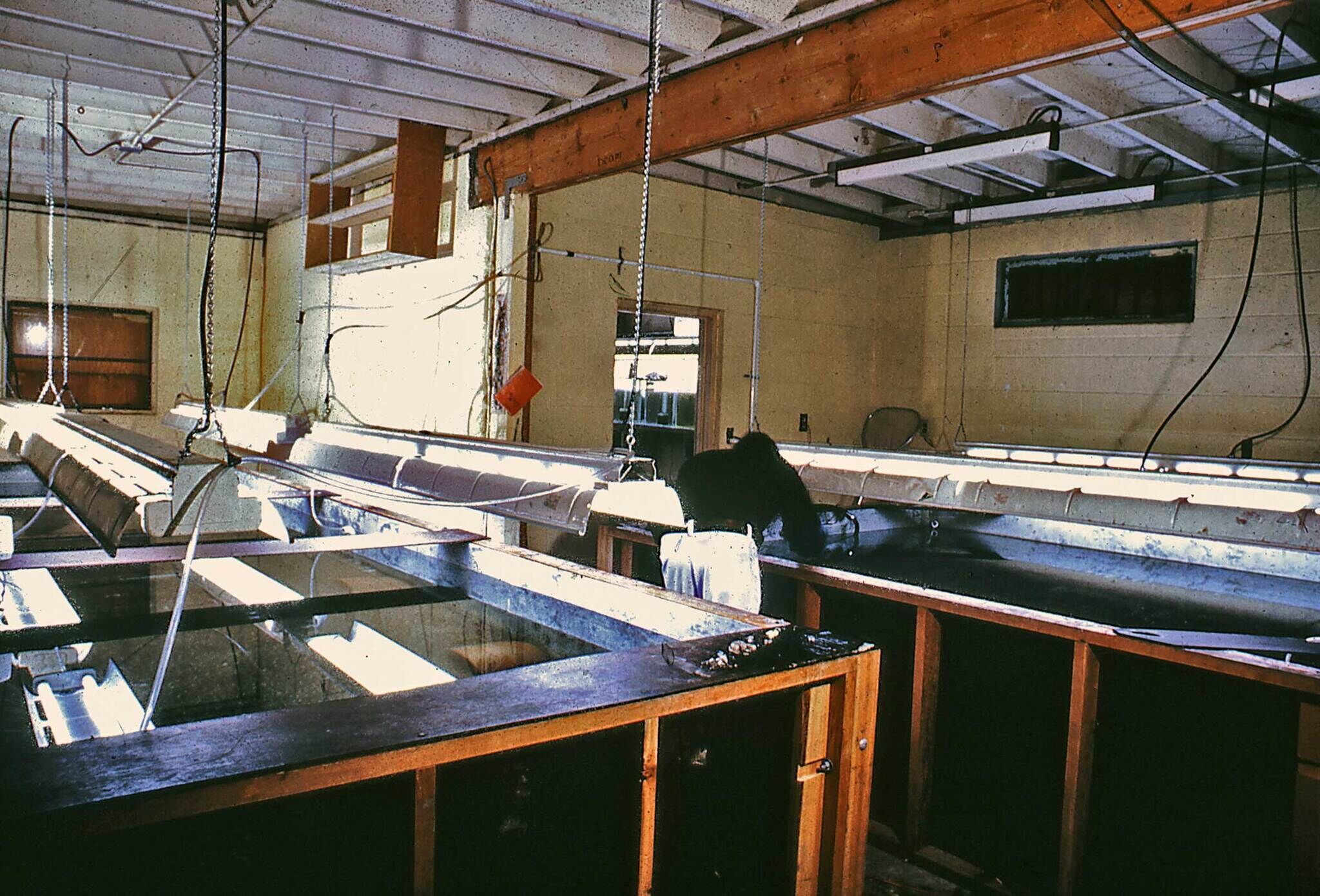Survival Piece #5: Portable Orchard | Art & Artists
June 29, 2024–Jan 5, 2025
Survival Piece #5: Portable Orchard | Art & Artists
The Survival Piece Series
3
Photographs and planning documents from the original installation of Portable Orchard, as well as installation views of the six other Survival Pieces, offer a glimpse into the first collaborations of the Harrisons, who married in 1953 and began working together in 1969. Each Survival Piece developed out of extensive research into a particular location in which the Harrisons sought to identify an environmental “anomaly” that could serve as a springboard for further consideration. Working with soil, animals, plants, and water within a gallery or museum context, the Harrisons were interested in the ways that the challenges they posed to host institutions could open up broader questions around feasibility in real-world applications. From the 1980s through the 2010s, the Harrisons created increasingly complex, site-responsive art installations around the world that functioned as works of bioregional planning and calls for large-scale environmental policy change.

